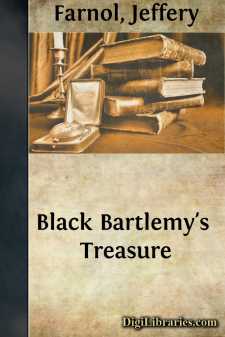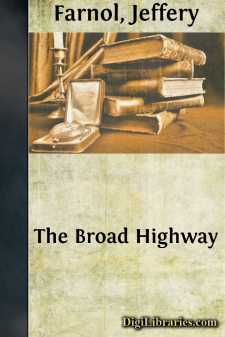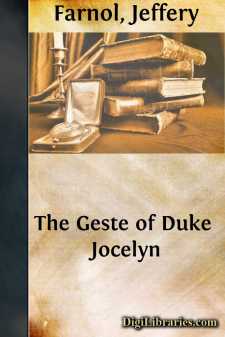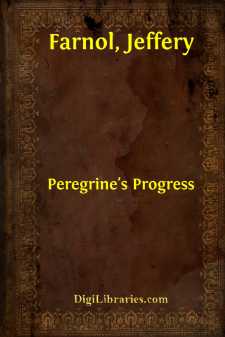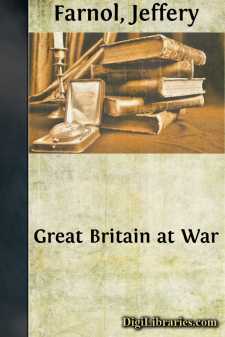Categories
- Antiques & Collectibles 13
- Architecture 36
- Art 48
- Bibles 22
- Biography & Autobiography 813
- Body, Mind & Spirit 142
- Business & Economics 28
- Children's Books 17
- Children's Fiction 14
- Computers 4
- Cooking 94
- Crafts & Hobbies 4
- Drama 346
- Education 46
- Family & Relationships 57
- Fiction 11829
- Games 19
- Gardening 17
- Health & Fitness 34
- History 1377
- House & Home 1
- Humor 147
- Juvenile Fiction 1873
- Juvenile Nonfiction 202
- Language Arts & Disciplines 88
- Law 16
- Literary Collections 686
- Literary Criticism 179
- Mathematics 13
- Medical 41
- Music 40
- Nature 179
- Non-Classifiable 1768
- Performing Arts 7
- Periodicals 1453
- Philosophy 64
- Photography 2
- Poetry 896
- Political Science 203
- Psychology 42
- Reference 154
- Religion 513
- Science 126
- Self-Help 84
- Social Science 81
- Sports & Recreation 34
- Study Aids 3
- Technology & Engineering 59
- Transportation 23
- Travel 463
- True Crime 29
My Lady Caprice
by: Jeffery Farnol
Description:
Excerpt
TREASURE TROVE
I sat fishing. I had not caught anything, of course—I rarely do, nor am I fond of fishing in the very smallest degree, but I fished assiduously all the same, because circumstances demanded it.
It had all come about through Lady Warburton, Lisbeth's maternal aunt. Who Lisbeth is you will learn if you trouble to read these veracious narratives—suffice it for the present that she has been an orphan from her youth up, with no living relative save her married sister Julia and her Aunt (with a capital A)—the Lady Warburton aforesaid.
Lady Warburton is small and somewhat bony, with a sharp chin and a sharper nose, and invariably uses lorgnette; also, she is possessed of much worldly goods.
Precisely a week ago Lady Warburton had requested me to call upon her—had regarded me with a curious exactitude through her lorgnette, and gently though firmly (Lady Warburton is always firm) had suggested that Elizabeth, though a dear child, was young and inclined to be a little self-willed. That she (Lady Warburton) was of opinion that Elizabeth had mistaken the friendship which had existed between us so long for something stronger. That although she (Lady Warburton) quite appreciated the fact that one who wrote books, and occasionally a play, was not necessarily immoral— Still I was, of course, a terrible Bohemian, and the air of Bohemia was not calculated to conduce to that degree of matrimonial harmony which she (Lady Warburton) as Elizabeth's Aunt, standing to her in place of a mother, could wish for. That, therefore, under these circumstances my attentions were—etc., etc.
Here I would say in justice to myself that despite the torrent of her eloquence I had at first made some attempt at resistance; but who could hope to contend successfully against a woman possessed of such an indomitable nose and chin, and one, moreover, who could level a pair of lorgnette with such deadly precision? Still, had Lisbeth been beside me things might have been different even then; but she had gone away into the country—so Lady Warburton had informed me. Thus alone and at her mercy, she had succeeded in wringing from me a half promise that I would cease my attentions for the space of six months, "just to give dear Elizabeth time to learn her own heart in regard to the matter."
This was last Monday. On the Wednesday following, as I wandered aimlessly along Piccadilly, at odds with Fortune and myself, but especially with myself, my eye encountered the Duchess of Chelsea.
The Duchess is familiarly known as the "Conversational Brook" from the fact that when once she begins she goes on forever. Hence, being in my then frame of mind, it was with a feeling of rebellion that I obeyed the summons of her parasol and crossed over to the brougham.
"So she's gone away?" was her greeting as I raised my hat—"Lisbeth," she nodded, "I happened to hear something about her, you know."
It is strange, perhaps, but the Duchess generally does "happen to hear" something about everything. "And you actually allowed yourself to be bullied into making that promise—Dick!...



